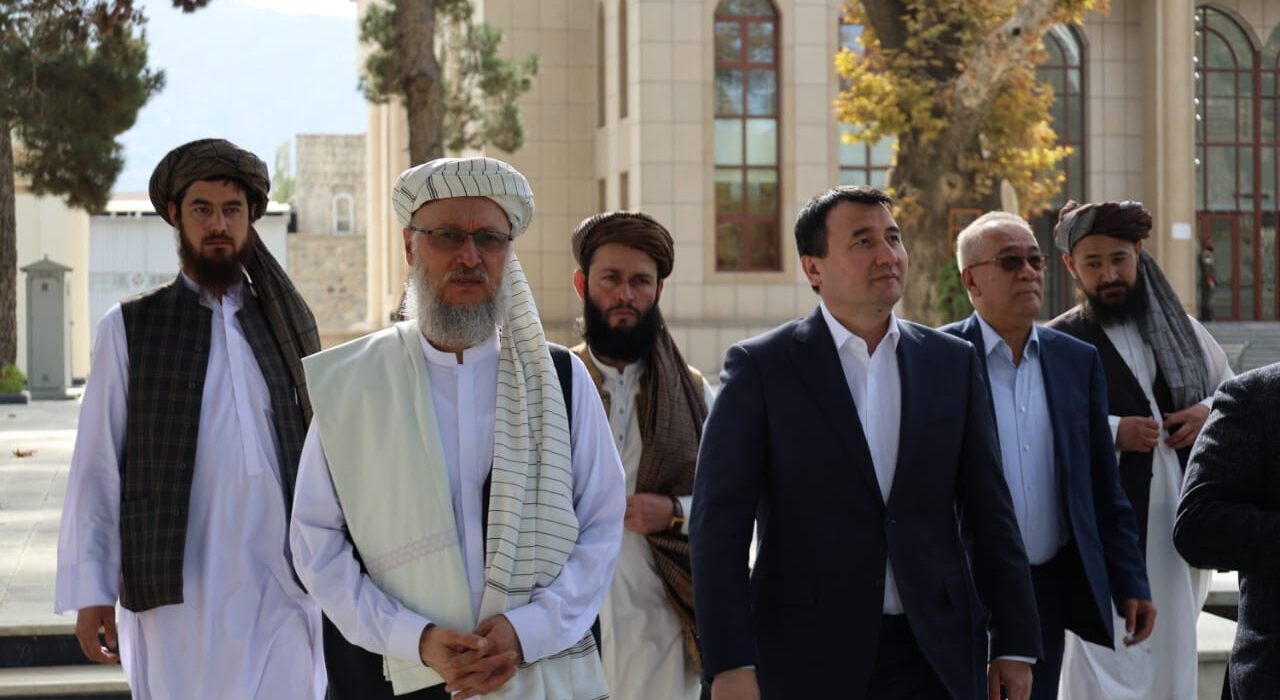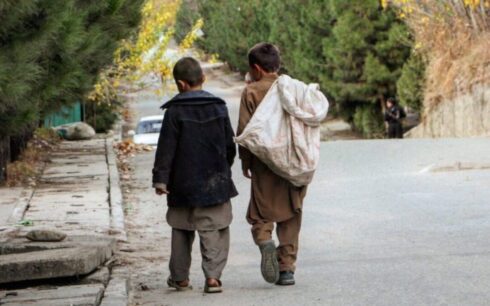Against a backdrop of mounting apprehensions in Uzbekistan regarding the strategic Qosh Tepa Canal in northern Afghanistan, a prominent Uzbek delegation, headed by Deputy Prime Minister Jamshid Khodjaev, has been engaged in talks with Taliban officials in Kabul since Sunday.
Although official statements from Taliban-run Arg and other state entities suggest that these discussions revolve around bilateral issues, analysts claim that the primary agenda pertains to the Qosh Tepa Canal.
Last month marked the completion of the canal’s initial phase, paving the way for the commencement of the second phase of this ambitious 115-mile waterway project.
The Qosh Tepa canal, also spelled as Qosh Tapa Canal, has been designed to redirect 20 percent of the water from the Amu Darya River to alleviate the arid plains of northern Afghanistan. A workforce of thousands operated heavy machinery and vehicles day and night, working on a canal that spans 100 meters (328 feet) wide.
For decades, this project has been a point of concern, especially for neighboring Central Asian countries like Uzbekistan. The visit by Uzbekistan’s deputy prime minister is widely speculated to address these concerns under the guise of bilateral cooperation.
Sayed Massoud, a former lecturer at Kabul University, stated, “The high-level Uzbek delegation’s visit is cloaked under other pretenses, but it essentially aims to placate the Taliban to halt work on the Ghosh Tepa Canal project in the Amu water area.”
Abdul Ghani Baradar, Taliban’s deputy chief minister, confirmed his meeting with the Uzbek deputy prime minister. He remarked, “The Islamic Emirate (Taliban) has been working to strengthen these relations for two years, driven by our numerous shared interests.”
As reported by separate Taliban statements, during this visit, the Uzbek delegation also engaged with acting ministers from the Taliban overseeing energy, water, and agriculture.
While Uzbekistan has yet to officially recognize the Taliban and maintains concerns about potential threats emanating from Afghanistan, experts suggest that regional policies are primarily shaped by self-interest and short-term considerations, despite the potential legal complexities and consequences of dealing with the Taliban.
“The policy of the countries in the region, including Uzbekistan, in relation to the Taliban is focused on their own interests and in the direction of time, although they know the consequences and legal burden of the agreements with the Taliban, they are seeking communication and agreement with the Taliban to secure their interests,” said Farhad Abrar, international relations analyst.
In recent years, the management of Afghanistan’s water resources has emerged as a contentious issue, leading to ongoing diplomatic tensions, including Iran’s disputes with Afghanistan over water rights.
Some experts contend that the Taliban’s approach to water resource management in Afghanistan has acquired a political dimension, with the group seeking substantial concessions in exchange for cooperation.





